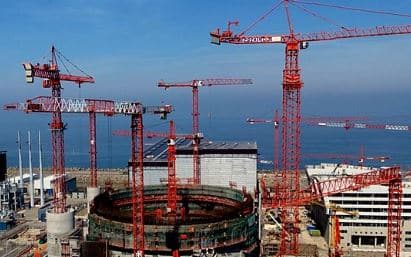EU representatives will meet next week to revise the bloc’s energy policy. The meeting shapes as a contest between pro-nuclear France and anti-nuclear Germany.
According to the EU, renewables remain the cheapest source of energy when available. But the previous fall-back – gas and coal – has become far more expensive since the cut-off of Russian supplies. This has brought the system of margin pricing, where consumers pay according to the most expensive source of power, under the microscope.
In particular, relative to gas, nuclear suddenly looks more affordable. And countries with already built and operated nuclear plants instead of fossil fuels don’t see why their consumers should pay the higher price.
“Nuclear is an absolute red line for the French government,” said France’s finance minister.
“Our country has the right to pay for electricity at the average cost of production and certainly not at the marginal cost of the latest gas-fired power plant in eastern Europe.”
The French government operates 56 nuclear reactors. Just a fortnight before Russia invaded Ukraine, President Macron announced plans to build 14 new reactors.
In essence, France sees that it now has an energy competitiveness advantage relative to Germany, which had been using cheap Russian fuels.
France now heads up a group of 16 EU countries looking to advance nuclear power on the continent. The so-called nuclear alliance includes Sweden, Italy, Poland, Netherlands, Hungary and Czech Republic.
Sweden’s government this week passed a law opening the way for new nuclear plants.
“By today’s decision, we are increasing the pace of the green transition and paving the way for more nuclear power in more places,” said Sweden’s Prime Minister. “With new nuclear power, we create the conditions for reducing emissions.”
The move was, however, dismissed as symbolic and uncommercial by Professor Lars Nilsson of Lund. “You cannot certainly say that we need 10 new reactors. Right now the expansion of electricity production in Sweden is through wind power.”

France’s next nuclear reactor, Flamanville 3, shows why. Construction began on the reactor in 2007 and its most recent cost overrun pushed the reactor’s price beyond 13 billion euros and the start date to 2024.
The necessary grid upgrades to reliably deliver renewable energy to consumers may be a much more cost effective investment than new nuclear.
Sign Up To Our Free Newsletter